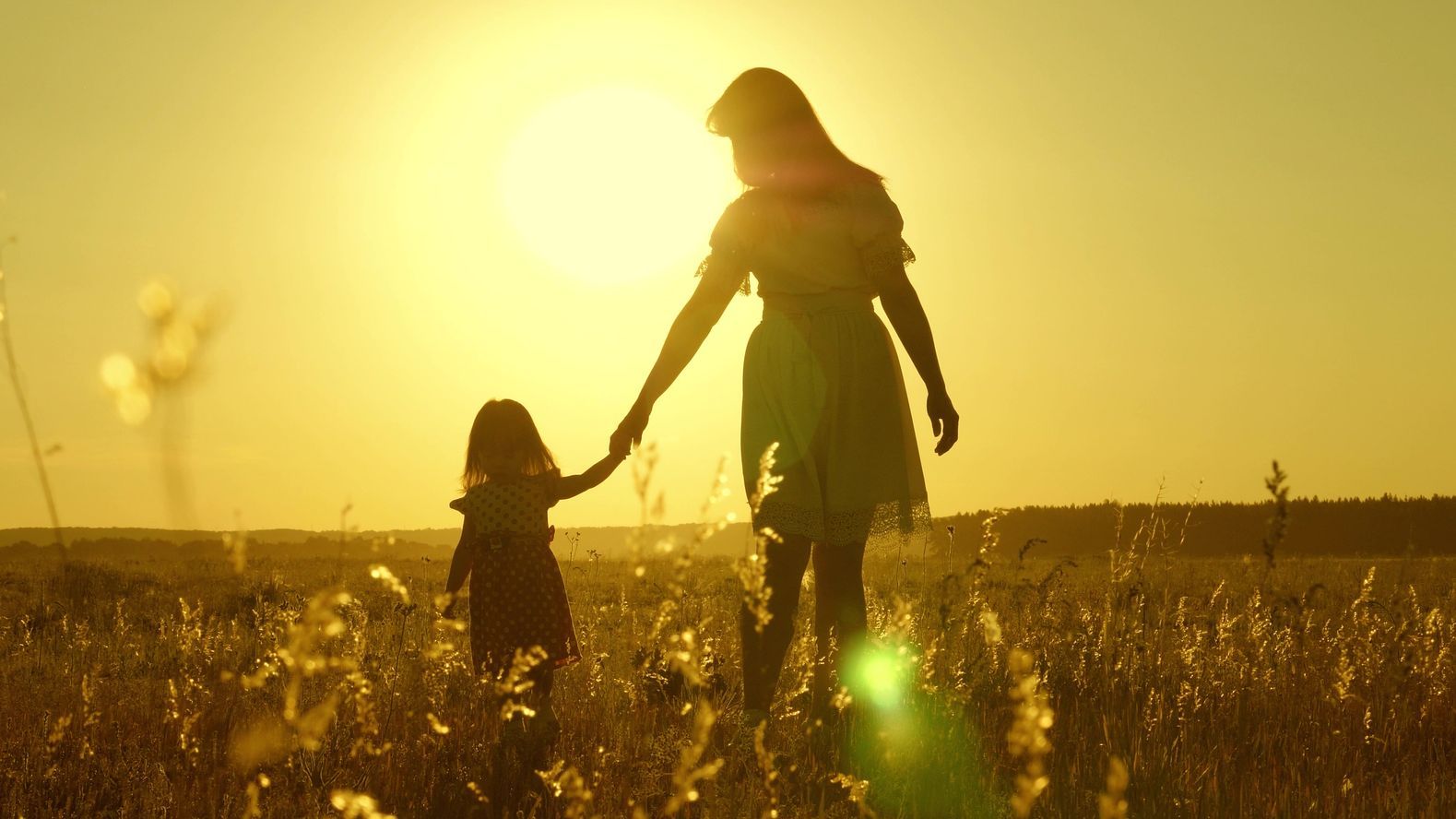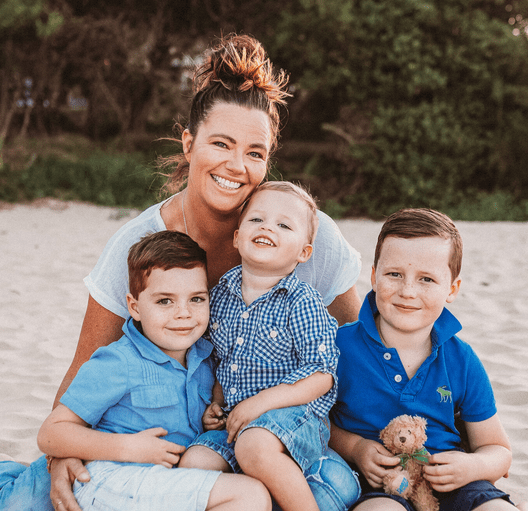Shining a Light on Mother Rage

Almost every mother experiences anger. Almost every mother acts on feeling angry during challenging moments. Many mothers experience it deeply as yelling, screaming, adult tantrums and even through enacting corporeal punishment.
Yet, not many mothers talk about mother rage or what you can do about it. Among mothers, there is a lot of shame around feeling anger and rage.
I want to shine the light on this very common experience within motherhood. If you or your clients are caught in cycles of anger, rage and then guilt and shame, there are constructive steps we can take to overcome it.
First, please know you are not alone and
you are NOT a bad mother.
Anger is a common and healthy human emotion that, when listened to, can tell you when a boundary has been crossed or if you have needs that have gone unmet. Anger can bring our attention to a need for change or growth in our lives.
Rage is a state of uncontrollable anger and can feel frightening and intense for us and those around us. It might look like a screaming match with a partner, verbal abuse and screaming at a child, or it could be physical aggression that hurts another person.
Why do we feel anger and rage so deeply as mothers?
Many mothers are overburdened with responsibility – trying to do too much for everyone else and not meeting their own needs.
As modern mothers, we are raising our children in a society without a village of support, an intense mental load, often a lack of healthy family support, huge expectations on our role in mothering as well as many roles on our plate – mother, wife, homemaker, business starter, healer, nurse, or teacher, part time student, community carer, or administrator, helpful friend – and the list goes on.
Self care can quickly disappear in the early months of motherhood, and for many mothers it never returns. Healthy meals, exercise, sleep and connection with friends can feel like long lost dreams. It doesn’t take long before a new mother feels physically and mentally depleted.
We need to feel our feelings
To be human is to feel. To be a fully expressed human is to express our emotions, and yet so many mothers do not feel safe with their anger or with their childrens’ anger.
As mothers, we may feel guilt, shame or fear when we express anger and rage. Maybe it is because as a little girl, your anger likely wasn’t accepted, acknowledged, or it was shut down. Perhaps you had angry caregivers who yelled, screamed, smacked and shamed you. When you notice yourself repeating the same cycles, guilt and fear can arise.
Similarly, when your children or partner express anger you might feel fear and even terror. Or like others, go into a “freeze state” and shut down emotionally.
All of these feelings and responses are actually quite common. These are signs that there are feelings that have been deeply suppressed over time, and are needing to be released.
When you feel triggered
So many parents have suppressed emotions from their childhood that start bursting out in parenthood. This often starts in the toddler years. That sweet baby suddenly becomes a moving being full of frustration, anger, discovery, joy, messiness and all the things. Their full emotional expression (which is healthy and developmentally appropriate) can trigger or activate anger within you that you didn’t even know existed.
How anger shows up
- Snapping constantly
- Gritting teeth
- Grabbing a child roughly
- Yelling
- Screaming
- Breaking and throwing items
- Hitting children/smacking
These triggers are very real. Your healthy anger can be a powerful catalyst for change and growth. Frequent rage is a sign that it is time to make a change.
It is better to express emotions rather than suppress them. We just need to find more safety for our anger – both within our own bodies and within our homes – so it is not being directed at our children.
I know it can feel like “If only they would listen, I wouldn’t need to get so angry and scream”... and also, there is often a wound within us around not being heard as children that needs to be looked at here.
What to do when you feel anger and rage rising?
Slow everything down and bring in some awareness. This takes practice. It’s like building muscle. We are all wired differently and need a variation of calming tools. Take time to learn what works for you, and what doesn’t.
Here are some recommendations to calm anger and rage:
- Notice your feelings, practice awareness, and breathe. Focus on your breath and recenter into your parenting intentions
- Leave the room. Create a moment of space for yourself to cool down. Say “I am feeling angry and I need to take some space.”
- Let it out. Scream it out (in a safe space alone) – feel the rage and scream it all out. The car is great or into a pillow. Scream, yell, curse and express. Writing out your feelings can also be a great method of release.
- Find a person to listen and hold space with empathy.
- Learn about nervous system regulation and how to build flexibility and capacity in your body to feel your anger.
- Find a Parent Coach who you resonate with, who you feel safe to be yourself with and who you can download your feelings to. A good coach for you is someone who helps you to feel supported, safe, seen and soothed.
Radical self care is vital
Meeting your own needs as a mother is critical to your physical and mental wellbeing. You can start meeting your needs with more rest, movement, extra water, reducing sugar and toxins, setting boundaries, reducing screen time, taking a social media break, meditating before bed, asking for help, eating nutrient dense food, getting better sleep hygiene and slowing life down. I know some of this can feel near impossible at times, but there are always solutions. Just pick one tool and start there.
Rage could be unprocessed grief that needs to be expressed
If you frequently experience rage, you may need to start processing past grief. Many mothers carry layers of grief. This could be grief for babies that you have lost, old friendships, your life pre motherhood, family relationships that have changed, parents who have died, a childhood you wish had been different, lack of support and community and more. This grief needs to be expressed, witnessed and felt in order for it to stop trickling into our present lives.
Mental Health check in
If your anger goes to rage regularly, it may be time to consider further support to heal deeper wounds under that rage. Seeing a psychologist, counselor or therapist is a great place to start to make sense of your feelings and parenting past. Find someone you feel safe to express your vulnerable moments with. Yoga, mindfulness and breathwork can also be helpful healing methods. Education, podcasts and workshops are good for understanding yourself more. Finding a supportive space to be heard might also be through parent coaching, mothers circles, or emotional release work.
If you are aware that you have significant trauma and complex triggers like grief, anxiety, childhood trauma or abuse, starting with a mental health specialist can be an impactful start to healing from anger and rage.
Steps to healing mama's angry outbursts
So you have yelled, screamed and raged at your child. Now what!
One of the most beautiful gifts of conscious parenting is learning the power of Rupture and Repair.
This is modeling a true apology to our children.
Here are the steps to repairing with your child:
1. Self compassion – Remind yourself that you are a human and we all have tough moments.
2. Awareness – Be aware that a rupture has happened.
3. Reconnect – Connect with your child and apologize.
4. Repair – Make a repair “I was feeling angry and I lost my temper. Please forgive me?”
5. Understand their needs – Ask your child about their feelings “Are you willing to share with me how it felt?” Listen and offer empathy.
6. Explore any unmet needs in your child or yourself ie. Does your child need more play? Do you need more self care? Are you yearning for more cooperation? Do they need more time in nature? Less screens? More connection?
7. Explore some solutions
Reconnect and repair as soon as possible - for a child 6 and under it’s preferable to do within an hour or so. Ages 6-8 within a day. Ages 9 and older within a few days.
But with that said, it’s never too late to heal the divide. You can heal and repair anytime with your children, even when they’re adults.
If all of this feels overwhelming, start slow. Just take the one next step and reach out for support.
We can’t do this parenting journey alone. If you’re seeking support, the Jai Parent Coach Certification Program provides a tight-knitted community that is committed to supporting each other and raising each other up in parenting, as well as in the lucrative, flexible career path of parent coaching. If this applies to you, consider joining the
Jai Parent Coach Certification Program today.
Meet Your Author, Alita Blanchard
Alita is a mother of 4 young boys (including a stillborn son Remy) on the NSW Central Coast, in Australia. She is a trauma informed Conscious Parent Coach, Women’s Circle and Rites of Passage facilitator. She provides regular mothers circles, workshops, events, listening time and parent coaching programs
Alita is passionate about creating a safe space for mothers to feel heard and seen in the intensity of their motherhood journey. She supports and guides mothers in their transformation through motherhood and helps to bring awareness to their own needs and emotions so they can feel more aligned, aware and connected to themselves and their children.
Website:
www.theawaremama.com.au
Social: @alitablanchard_parentcoach
Share This Article:
Curious for more?














